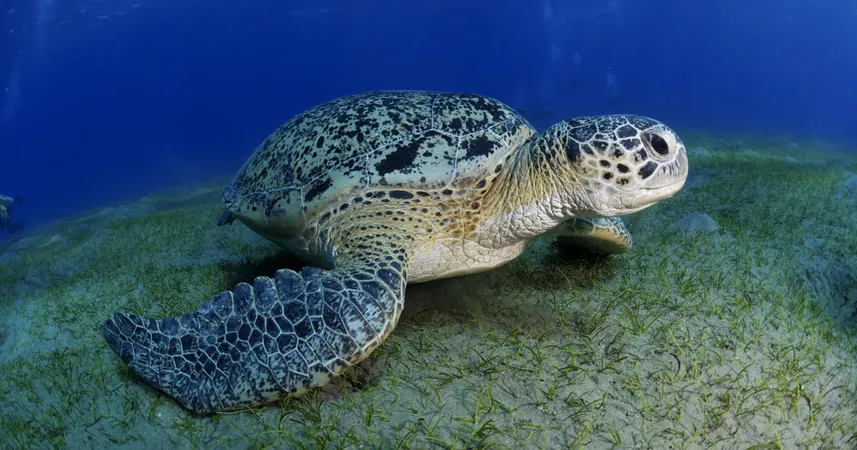
Tragic Consequences: 3 Lives Lost After Eating Sea Turtle Stew in the Philippines
2024-12-02
Author: Lok
Tragic Consequences of Consuming Sea Turtle Stew
In a shocking incident in the Philippines, three members of the Indigenous Teduray community have tragically died, and more than 30 others have been rushed to the hospital after consuming an endangered sea turtle stew. This heartbreaking event unfolded in the coastal town of Maguindanao del Norte Province, sparking concerns about the dangers of hunting and consuming protected marine life.
Health Impacts and Legal Concerns
According to local health reports, many villagers began experiencing severe symptoms such as diarrhea and vomiting shortly after ingesting the dish last week. While the sea turtle stew was cooked in the style of adobo — a beloved Filipino dish — health officials were swift to remind residents of the critical environmental protection laws that prohibit the hunting or consumption of sea turtles. Despite these laws, the practice continues in some communities, often underpinned by traditional customs.
Local Reactions and Calls for Change
Local official Irene Dillo expressed her sorrow over the tragedy, stating, "It was unfortunate because there is so much other seafood in their village - lobsters, fish." This remark highlights a recurring concern among environmentalists that cultural practices can sometimes overshadow safety and conservation efforts.
Broader Implications and Investigations
In an alarming extension of the situation, pets in the area, including dogs, cats, and chickens, that had been fed leftovers from the stew also perished, prompting further investigation into the potential toxicity of the dish. Experts suggest that sea turtles that consume contaminated algae may pose health risks to humans when cooked, a critical point that the authorities are likely to consider as they investigate the deaths.
A Call for Stricter Enforcement
Datu Mohamad Sinsuat Jr., a local councilman, has emphasized the need for stricter enforcement of the ban on hunting sea turtles, stating, "We must take action to ensure that this food poisoning incident never happens again." His call for vigilance reflects a broader initiative to protect endangered species while safeguarding the health and safety of local communities.
Conclusion: A Tragic Reminder
This incident serves as a stark reminder of the intersection between tradition, environmental law, and public health. It raises important questions about sustainable practices in culturally rich regions and the ongoing battle against the illegal hunting of endangered species in the Philippines. As investigations continue, the hope is to prevent such tragedies in the future and preserve the delicate balance between cultural heritage and wildlife conservation.



 Brasil (PT)
Brasil (PT)
 Canada (EN)
Canada (EN)
 Chile (ES)
Chile (ES)
 España (ES)
España (ES)
 France (FR)
France (FR)
 Hong Kong (EN)
Hong Kong (EN)
 Italia (IT)
Italia (IT)
 日本 (JA)
日本 (JA)
 Magyarország (HU)
Magyarország (HU)
 Norge (NO)
Norge (NO)
 Polska (PL)
Polska (PL)
 Schweiz (DE)
Schweiz (DE)
 Singapore (EN)
Singapore (EN)
 Sverige (SV)
Sverige (SV)
 Suomi (FI)
Suomi (FI)
 Türkiye (TR)
Türkiye (TR)